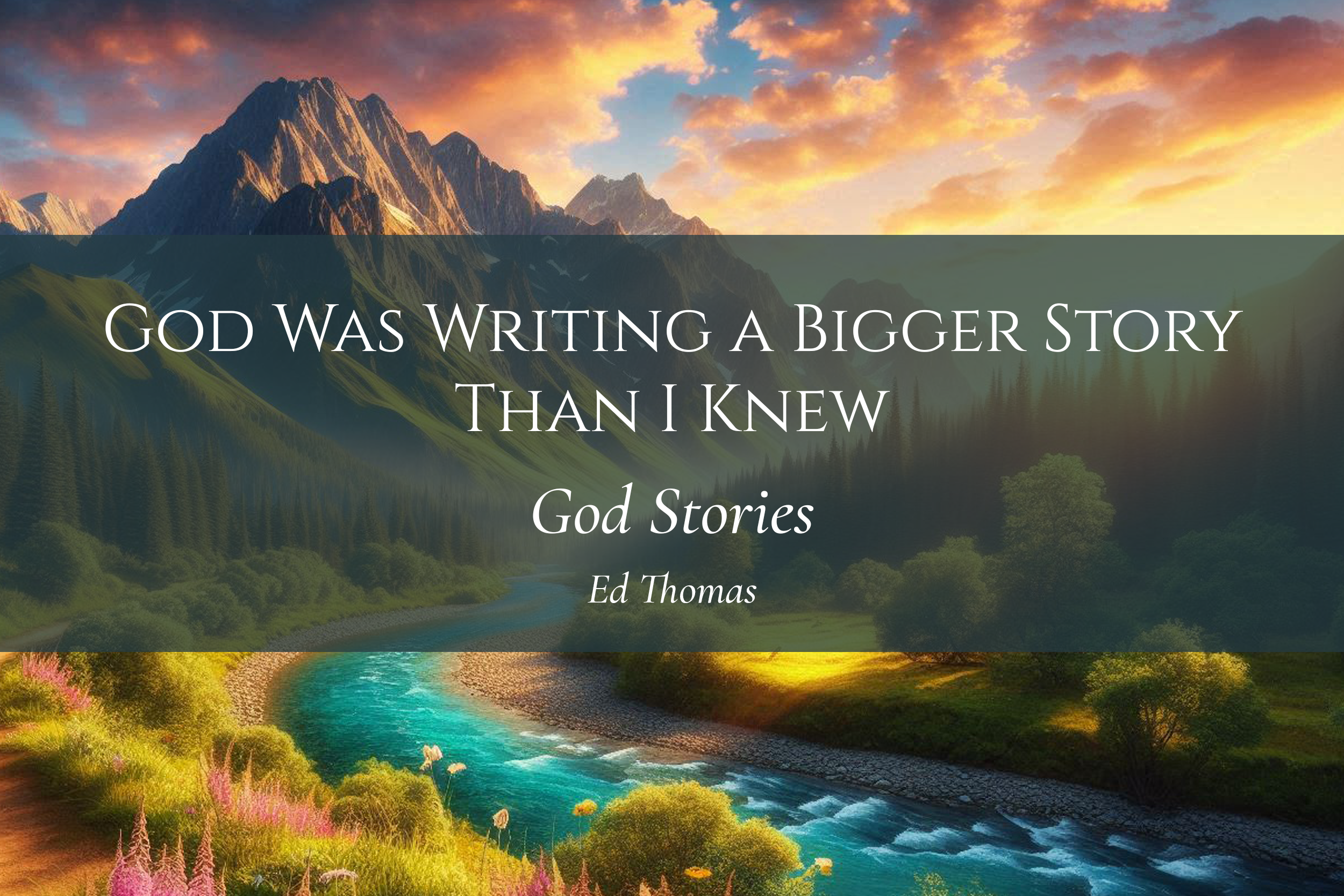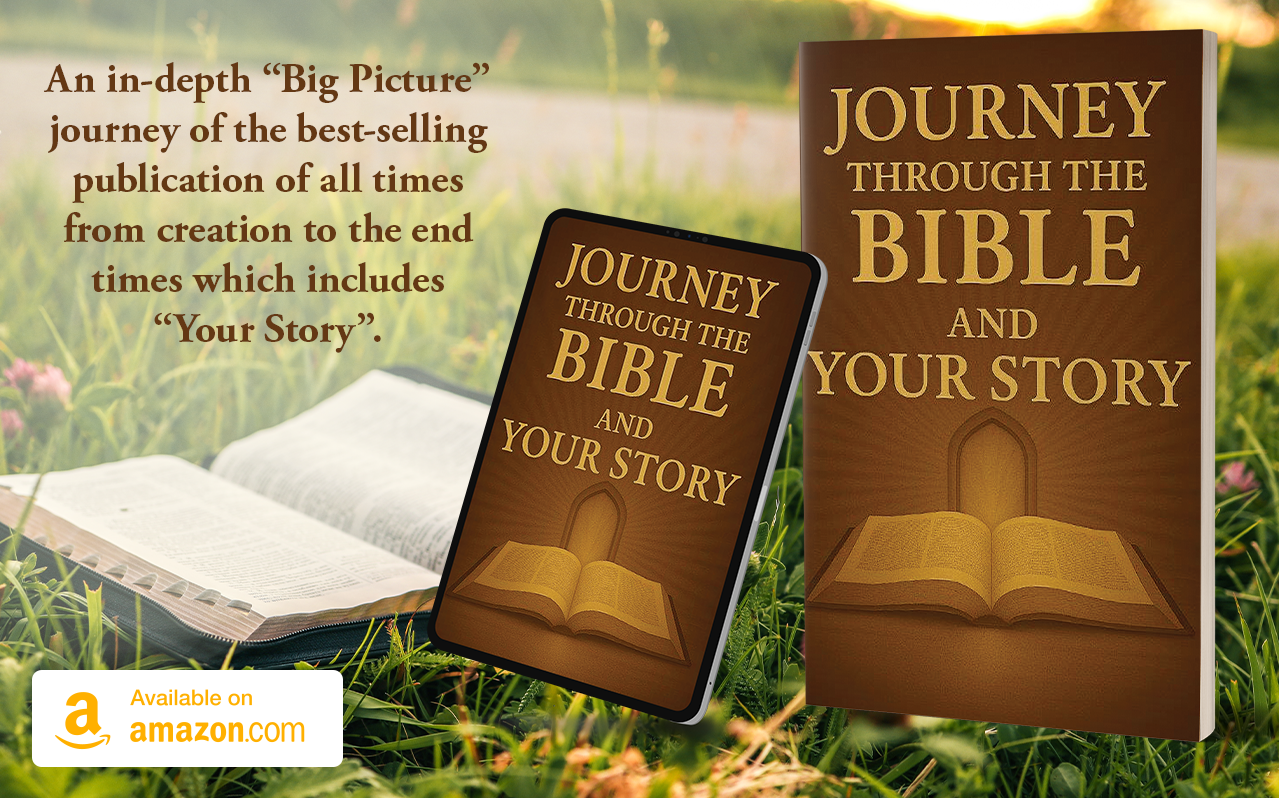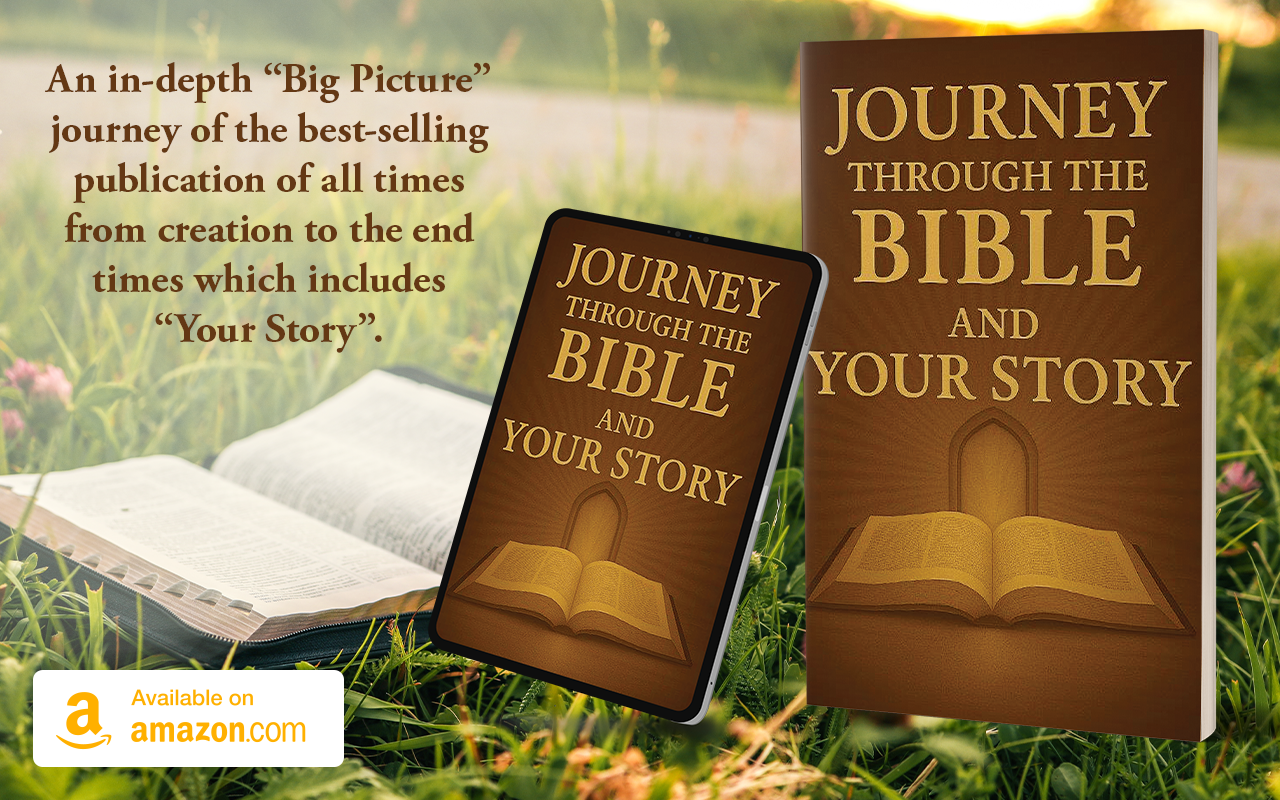
Experiencing
God’s Word
in our daily lives
Latest Articles
Looking back after many years but not realizing at the time, I see God's personal relationship with me as an adopted son (Romans 8:15 “The Spirit you received does not make you slaves in fear again; rather, the Spirit you received brought about your adoption to sonship. And by Him, we cry, Abba, Father”). His loving Fatherly hands were all over my life (Jeremiah 29:11” For I know the plans I have for you, plans to prosper you and not to harm you, plans to give you hope and a future.”). I will highlight a few of the God Stories in my life.
The Church Age began in Acts 2 around 30-33 AD when the Holy Spirit descended upon the disciples gathered in Jerusalem for the Feast of Pentecost. Empowered by the Spirit, Peter preached the gospel and 3,000 people were saved that day (Acts 2:41). This marked the beginning of the Christian Church as a spiritual body distinct from Judaism. The early church experienced rapid growth as the apostles continued preaching, performing signs and wonders, and writing Scripture (Acts 2:47). The expansion of the church is fulfilling Jesus’ Great Commission that the gospel be spread to and beyond Jerusalem to Judea, Samaria, and the ends of the earth (Acts 1:8)
In John 14:16-17 Jesus tells his followers prior to his death “And I will ask the Father, and he will give you another Helper, to be with you forever, even the Spirit of truth, whom the world cannot receive, because it neither sees him nor knows him. You know him, for he dwells with you and will be in you.”
The Holy Spirit is the third person of the Holy Trinity, alongside God the Father and Jesus Christ. He is God present in the lives of believers, and He works in various ways.
After the resurrection, Jesus did not immediately return to the Father. Instead, for forty sacred days, He remained with His disciples—teaching, restoring, strengthening, and preparing them for the mission that would soon be placed in their hands. These were holy days filled with divine purpose. Jesus unfolded the truths of the kingdom of God, helping His disciples understand what His death and resurrection had accomplished and what their calling would now require.
Before He ascended into Heaven, Jesus gave His followers a commission that still echoes across history: “You will be My witnesses” (Acts 1:8). He promised them the power of the Holy Spirit—the same Spirit who had filled His own earthly ministry—so that their words, their lives, and even their suffering would testify to the reality of the risen King. In Matthew 28, Jesus grounded this mission in His own authority: “All authority in heaven and on earth has been given to Me.” Every command that followed flowed from that divine authority: go, make disciples, baptize, teach.
From the very beginning, Satan has opposed God’s redemptive plan. His final and fiercest attempt came at the cross, where he stirred both Jewish and Roman leaders to crucify Jesus—believing, perhaps, that death would silence the Son of God. But what looked like defeat was, in truth, the very path God had ordained to redeem humanity.
Jesus endured unimaginable suffering: scourging, beatings, a crown of thorns, and ultimately death by crucifixion—reserved for the worst of criminals. Yet, even in agony, His words from the cross—echoing Psalm 22—reminded all who heard that this was no ordinary execution. He was fulfilling prophecy, not succumbing to defeat.
Jesus’ earthly ministry—though brief in time—forever altered the course of history. Lasting just over three years, His public work began around the age of 30, marked by His baptism in the Jordan River by John the Baptist. As He emerged from the water, the heavens opened and the Father declared, “This is My beloved Son, in whom I am well pleased” (Matthew 3:17). It was a divine affirmation that echoed through the ages.
Immediately following this moment, Jesus was led into the wilderness where He fasted for forty days and resisted every temptation Satan hurled at Him. In doing so, He not only demonstrated His sinless nature but modeled spiritual resilience for all who would follow Him.
Before Jesus stepped into public ministry around the age of 30, His early life quietly fulfilled promise after promise spoken long before His birth. Though His early years are covered in only a few Gospel chapters, they are rich with meaning, divine orchestration, and prophetic fulfillment.
Jesus was born in Bethlehem to Mary, a young virgin engaged to Joseph. This miraculous birth fulfilled Isaiah’s ancient words: “Behold, the virgin shall conceive and bear a son…” (Isaiah 7:14). His arrival was first announced to humble shepherds and later honored by Magi who traveled far, recognizing in Him the long-awaited “King of the Jews.”
When the final Old Testament prophet, Malachi, put down his pen, a remarkable thing happened. For the first time in centuries, the voice of prophecy—the voice that had guided, warned, and comforted God’s people—went quiet.
From the days of Elijah and Isaiah through Jeremiah, Ezekiel, and the twelve Minor Prophets, God had spoken through chosen messengers—His navi, or “mouthpieces.” These men and women carried the weight of divine truth, calling Israel and Judah to repentance, justice, and faithfulness to their covenant with God. They were His covenant enforcers, reminding the people that blessing came through obedience and that rebellion led to ruin (Deuteronomy 28).
The Bible doesn’t just tell us how it all began—it tells us how it all ends.
From Genesis to Revelation, Scripture reveals not only God’s work in the past and present, but also His plans for the future. Biblical prophecies about the end times offer a powerful, sometimes sobering, but ultimately hopeful picture of what lies ahead: a world shaken, a Savior returning, and a new creation emerging under God’s eternal reign.
From the very beginning, the story of Scripture has been leading somewhere. Woven into the history, poetry, and prophecy of the Old Testament is a golden thread of promise—a Redeemer was coming. Long before Jesus walked the earth, God was preparing His people, hinting at what was to come through prophecies scattered across the pages of Scripture.
It’s easy to read the Old Testament as a collection of ancient stories, but when seen through the lens of Jesus Christ, it becomes one unified testimony to God’s plan of redemption. From Genesis to Malachi, the Messiah is promised—not in vague hope, but in remarkable detail.






